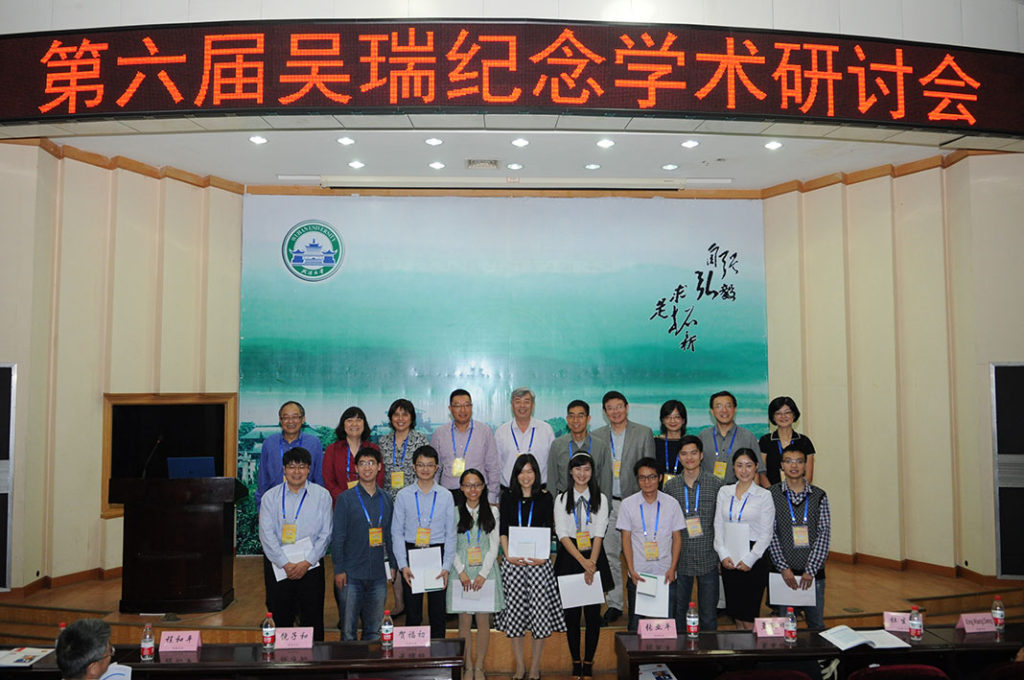THE RAY WU PRIZE
2015 Ray Wu Prize Winne
2015 Awardees at Ceremony
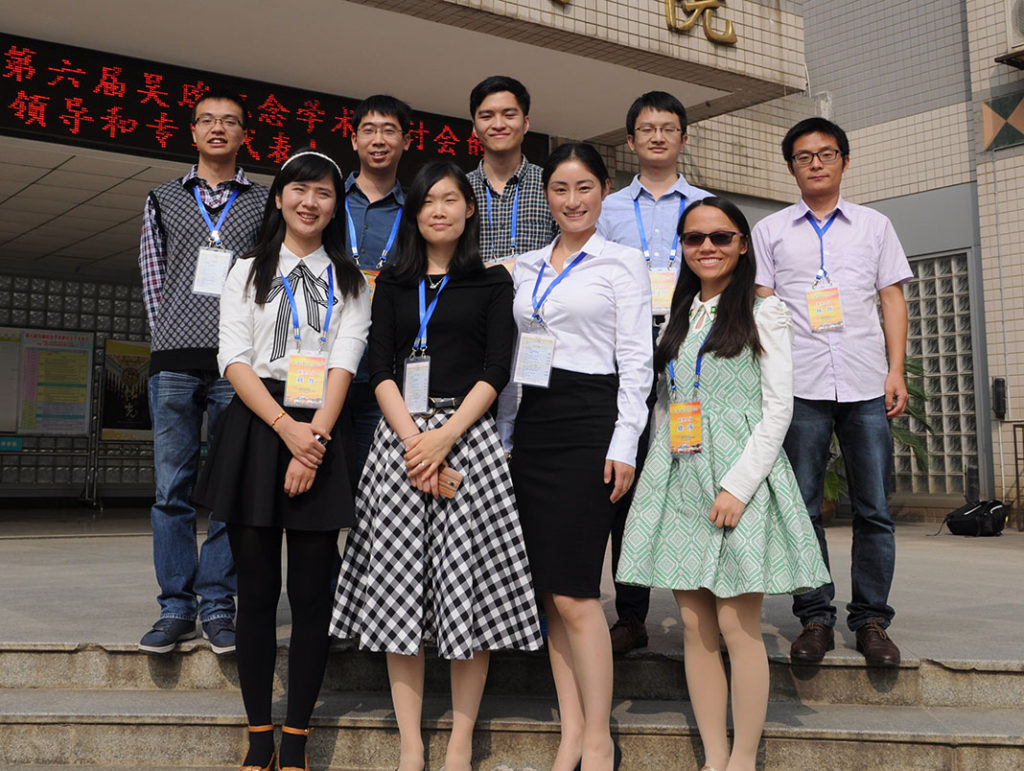
Yacheng Liao
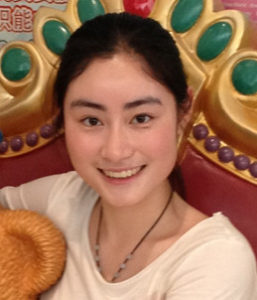 Background: Ms. Liao received her BS from Tongji University in 2010, and is conducting her Ph.D. study in the field of cholesterol metabolism under the direction of Dr. Song, Baoliang in Institute of Biochemistry and Cell Biology (IBCB), Shanghai Institutes for Biological Sciences, CAS. She and colleagues set up a novel and well-designed screening method so that they could specifically kill wild-type cells but not cholesterol trafficking defective cells. They found lysosome formed membrane contact with peroxisome, through which cholesterol moves from one organelle to another.
Background: Ms. Liao received her BS from Tongji University in 2010, and is conducting her Ph.D. study in the field of cholesterol metabolism under the direction of Dr. Song, Baoliang in Institute of Biochemistry and Cell Biology (IBCB), Shanghai Institutes for Biological Sciences, CAS. She and colleagues set up a novel and well-designed screening method so that they could specifically kill wild-type cells but not cholesterol trafficking defective cells. They found lysosome formed membrane contact with peroxisome, through which cholesterol moves from one organelle to another.
Citation: Ms. Liao did a lot of experimental work, using a variety of molecular and cellular methods. She contributed significantly in forming novel hypotheses. This new discovery advanced the field. Her knowledge of her own project and the broad field of cellular transport is excellent. She is also knowledgible in cholesterol functions and metabolism in general. Her communication skills are outstanding. She follows questions with clear and precise answers, as well as in depth. Liao’s work is to understand the molecular mechanisms of intracellular cholesterol transport. Her work revealed an important role of peroxisome in intracellular cholesterol transport and in human diseases. She has a clear mind and is a focused scientist.
This prize is sponsored by The Yu and Wei Foundation.
Hongshan Guo
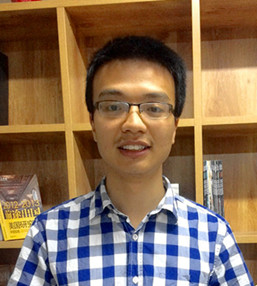 Background: Mr. Guo received his bachelor degree from Zhongnan University in 2011, and is conducting his Ph.D. research in the laboratory of Dr. Tang, Fuchou at Peking University. Mr. Guo works on DNA methylation on early embryonic development. He developed new method (reduced representative bisulfite sequencing, RRBS) on single cell based DNA methylation screen. The method revolutionized the epigenetic field.
Background: Mr. Guo received his bachelor degree from Zhongnan University in 2011, and is conducting his Ph.D. research in the laboratory of Dr. Tang, Fuchou at Peking University. Mr. Guo works on DNA methylation on early embryonic development. He developed new method (reduced representative bisulfite sequencing, RRBS) on single cell based DNA methylation screen. The method revolutionized the epigenetic field.
Citation: Mr. Guo is a student with the ability to think and work independently. He was able to independently design a new methods, and makes significant progress in the field. He shows board knowledge and is well versed in the literature of stem cell epigenetics. He is enthusiastic about his research project, and seems very ambitious.
This prize is sponsored by Crown Biosciences, Inc.
Jianjin Shi
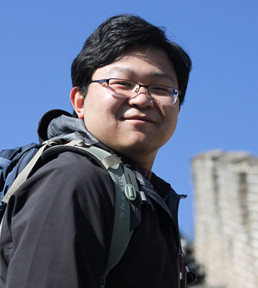 Background: Mr. Shi received his bachelor degree from Lanzhou University in 2008, and is conducting his Ph.D. research in the laboratory of Dr. Shao, Feng in the National Institute of Biological Science (NIBS). He identified caspase-4/5, a pair of related intracellular cysteine proteases, as receptors for gram-negative bacteria surface lipopolysaccharide, LPS. The binding of LPS to caspase-4/5 results in their activation and ensuing cytokine secretion and cell death.
Background: Mr. Shi received his bachelor degree from Lanzhou University in 2008, and is conducting his Ph.D. research in the laboratory of Dr. Shao, Feng in the National Institute of Biological Science (NIBS). He identified caspase-4/5, a pair of related intracellular cysteine proteases, as receptors for gram-negative bacteria surface lipopolysaccharide, LPS. The binding of LPS to caspase-4/5 results in their activation and ensuing cytokine secretion and cell death.
Citation: Mr. Shi is smart, thoughtful and independent. He shows great grasp of knowledge and are familiar with the literature in innate immunity and LPS induced sepsis. He has clearly shown curiosity and intelligence. He is highly motivated and ambitious.
Wei Chen
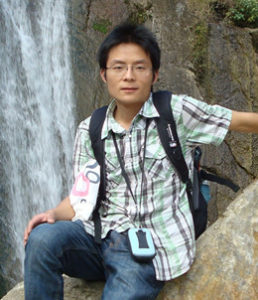 Background: Mr.Chen received his Bachelor of Science degree from Huazhong Agricultural University in 2010, entered his Ph.D. program in Huazhong Agricultural University in 2011. His advisor is Dr. Luo, Jie. He engaged in rice metabolomics. He established a relatively complete gene pool of rice metabolomics, and analysis the genetic basis of rice metabolism. Then, he identified a number of important traits of gene and reconstructed the relevant pathway.
Background: Mr.Chen received his Bachelor of Science degree from Huazhong Agricultural University in 2010, entered his Ph.D. program in Huazhong Agricultural University in 2011. His advisor is Dr. Luo, Jie. He engaged in rice metabolomics. He established a relatively complete gene pool of rice metabolomics, and analysis the genetic basis of rice metabolism. Then, he identified a number of important traits of gene and reconstructed the relevant pathway.
Citation: Mr. Chen established a system to correlate plant secondary metabolites with specific genes. He was skillful in determining the metabolites from plant tissues using mass spec. By detailed analyses of the metabolite classes, he was able to identify novel genes involved in secondary metabolites production and plant development. He then was able to use small RNAs to knock down the genes and confirmed the functions of the genes. He found one important gene related to a metabolite that increases the width of leaves. His strength is in genomic analyses and mass spec experiments. His has broad knowledge of genomic studies in different organisms, especially studies related to metabolisms. He showed strong interests in other fields, especially Chinese medicine. He has a great promise to become an outstanding scientist in plant field.
This prize is sponsored by Jianmin Chen and Xiaoqiao Jiang
Xiao-ou Zhang
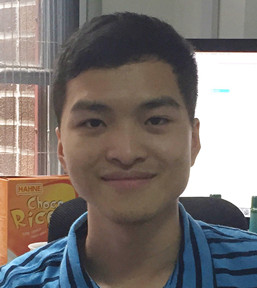 Background: Mr. Zhang received his BS from Huazhong Agricultural University in 2011, and entered the PhD program in CAS-MPG Partner Institute for Computer Biology, Shanghai Institutes for Biological Sciences, CAS, where he studies under Dr. Li, Yang. His research interest is to pan for meaningful information hiding in the complex eukaryotic transcriptome through the next generation sequencing technology and relevant computational analysis methods.He revealed some novel biogenesis clues for two distinct types of circular RNAs (ciRNAs and circRNAs), which further expands knowledge on the complexity of mammalian posttranscriptional regulation.
Background: Mr. Zhang received his BS from Huazhong Agricultural University in 2011, and entered the PhD program in CAS-MPG Partner Institute for Computer Biology, Shanghai Institutes for Biological Sciences, CAS, where he studies under Dr. Li, Yang. His research interest is to pan for meaningful information hiding in the complex eukaryotic transcriptome through the next generation sequencing technology and relevant computational analysis methods.He revealed some novel biogenesis clues for two distinct types of circular RNAs (ciRNAs and circRNAs), which further expands knowledge on the complexity of mammalian posttranscriptional regulation.
Citation: Ms. Zhang used new bioinformatics methods to help identifying novel circular RNA, a new class of RNA molecules that are involved in gene regulation. He has clear understanding about his studies. He also showed strong knowledge in the broad field. He answers questions calmly and down to the point. HIs future plan to further the studies of RNA functions is impressive.Zhang’s work is to understand the generation, regulation, and function of circular RNA in mammals. Zhang demonstrated the function of the flanking intronic complementary sequences in exon circularization and the generation of complex alternative circularization products. His work contributes to the fundamental understanding of the molecular mechanisms of circular RNA biogenesis. Zhang is an intelligent and mature student and is enthusiastic about science. He is clear about his field and his research direction.
This prize is sponsored by The Xu and Chen Foundation.
Dan Liu
 Background: Ms. Liu received her bachelor degree from Wuhan University in 2011. She entered the PhD program in Tsinghua University, where she studies under Dr. Qi, Hai in 2013. Her PhD thesis research was focused on redefining the concept of inducible co-stimulator (ICOS-) – ICOS ligand (ICOSL) signaling in Tfh cell formation and germinal center selection, which might be useful for manipulating affinity maturation n vaccine design.
Background: Ms. Liu received her bachelor degree from Wuhan University in 2011. She entered the PhD program in Tsinghua University, where she studies under Dr. Qi, Hai in 2013. Her PhD thesis research was focused on redefining the concept of inducible co-stimulator (ICOS-) – ICOS ligand (ICOSL) signaling in Tfh cell formation and germinal center selection, which might be useful for manipulating affinity maturation n vaccine design.
Citation: Ms. Liu has a clear mind in immunology. She is passionate about her research. She shows knowledge about the literature of B cell and T cell immunology. She is highly motivated and ambitious, and wants to make a mark in the world. She appears extremely enthusiastic in science and research. She has clearly shown curiosity and intelligence.
This prize is sponsored by Chinese Biological Investigators Society.
Yuanyuan Yao
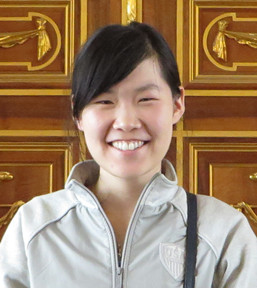 Background: Ms. Yao achieved her bachelor degree from Lanzhou University in 2010, and entered the Ph.D. program in Institute of Neuroscience, Shanghai Institutes for Biological Science, Chinese Academy of Science. Her advisor is Dr. Du, Jiulin. Her thesis is on the neural circuit mechanism underlying visuomotor transduction in the zebrafish. She discovered that threatening light stimuli (representing an approaching predator) trigger the escape motor response via a dopamine-regulated interneuronal gating of the visuomotor signal transmission – light-induced dopamine action removes the interneuronal inhibition of the Mauthner neuron that activates the motor output.
Background: Ms. Yao achieved her bachelor degree from Lanzhou University in 2010, and entered the Ph.D. program in Institute of Neuroscience, Shanghai Institutes for Biological Science, Chinese Academy of Science. Her advisor is Dr. Du, Jiulin. Her thesis is on the neural circuit mechanism underlying visuomotor transduction in the zebrafish. She discovered that threatening light stimuli (representing an approaching predator) trigger the escape motor response via a dopamine-regulated interneuronal gating of the visuomotor signal transmission – light-induced dopamine action removes the interneuronal inhibition of the Mauthner neuron that activates the motor output.
Citation: She did a lot of work to systematically mapping the role of different neuron types in controlling behaviors of zebrafish, such as escaping. Her persistence paid off. Her knowledge in behavioral studies in relationship to neural responses is exceptionally strong. She always keeps an eye on new methodology and new development of the field. She showed a clear mind and answers questions with confidence and talked very clearly. Her future plan is bold. She also has a pleasant personality.Yao’s work is to understand the neural basis of animal behavior. Using zebrafish as a model, she discovered an on/off switch neural circuit for behavioral selection, which is fundamentally important in understanding the neural mechanisms of animal behavior. Yao is a thoughtful scientist and has a sharp mind to grasp important discoveries during experiments. She is also enthusiastic and persistent in scientific research.
Zihou Deng
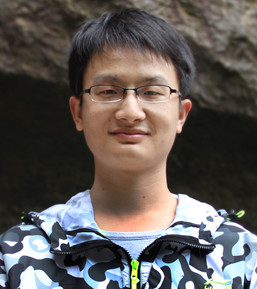 Background: Mr. Deng achieved his bachelor degree from Huazhong Normal University in 2010, and entered the Ph.D. program at Institut Pasteur of Shanghai (IPS). His advisor is Dr. Xiao, Hui. He focused on “SHP-2 mediates dectin-induced Syk activation and anti-fungal Th17 responses”. He demonstrates SHP2 function as adaptor plays indispensable role to pass signaling from CLRs to Syk kinase.
Background: Mr. Deng achieved his bachelor degree from Huazhong Normal University in 2010, and entered the Ph.D. program at Institut Pasteur of Shanghai (IPS). His advisor is Dr. Xiao, Hui. He focused on “SHP-2 mediates dectin-induced Syk activation and anti-fungal Th17 responses”. He demonstrates SHP2 function as adaptor plays indispensable role to pass signaling from CLRs to Syk kinase.
Citation: Mr. Deng discovered an important adaptor protein that is involved in the innate immune response to pathogenic fungi. This work filled one critical gap of this pathway that is different from other pathways of innate immune responses. He completed this project by generating conditional KO mice and defined the role of the signaling pathways in different cell types. This project was mostly carried out by him independently. For a fourth year student, he did a lot of work to present this beautiful story. His knowledge in innate immunity is exceptionally broad and in depth. He was capable of analysing and solving difficult problems. He is very serious about his work and showed high intelligence during discussion.
Sha Yu
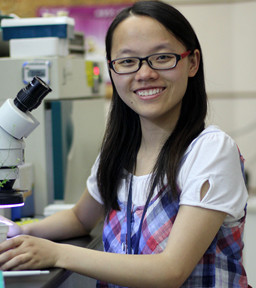 Background: Ms. Yu received her Bachelor from Lanzhou University in 2010 and entered the Ph.D. program in the laboratory of Dr. Wang, Jiawei in Institute of Plant Physiology and Ecology, SIBS, CAS in 2012. Her research interest is on the functions and mechanisms of a small RNA, miR156, which is highly conserved in plants. She found that miR156 mediates gibberellin-regulated flowering time via direct interaction between SPL and DELLA in Arabidopsis, which answered a long-standing question how gibberellins promotes flowering in plants.
Background: Ms. Yu received her Bachelor from Lanzhou University in 2010 and entered the Ph.D. program in the laboratory of Dr. Wang, Jiawei in Institute of Plant Physiology and Ecology, SIBS, CAS in 2012. Her research interest is on the functions and mechanisms of a small RNA, miR156, which is highly conserved in plants. She found that miR156 mediates gibberellin-regulated flowering time via direct interaction between SPL and DELLA in Arabidopsis, which answered a long-standing question how gibberellins promotes flowering in plants.
Citation: Ms. Yu showed the great quality in independent thinking and self-initiative. She understood the significance on her findings. She is very knowledgeable in plant field on micro RNA. She is clearly familiar with the RNA field, the leading scientists and critical biological questions. She is highly motivated and ambitious. She is extremely enthusiastic on science and research. She is clearly shown curiosity and intelligence. The interaction with her is easy and stimulating. She speaks clearly and has great quality as a teacher.
Ding Liu
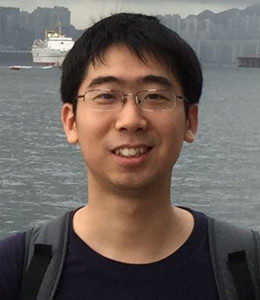 Background: Mr. Liu received his bachelor degree from Henai University in 2010, and entered the Ph.D. program in the laboratory of Dr. Li, Chenyu in Institute of Neurosicence, Shanghai Institutes for Biological Science, Chinese Academy of Science in 2012. He is involved in investigating the role of neuronal activity in medial prefrontal cortex (mPFC) neurons in mouse’ learning to perform a working memory task. Through a combination of electrophysiological recording and optogenetic modulation of neuronal activity, he represents a application of the latest optogenetic manipulation to study the causal relationship between neuronal activity in a specific brain region and the brain function and animal behavior.
Background: Mr. Liu received his bachelor degree from Henai University in 2010, and entered the Ph.D. program in the laboratory of Dr. Li, Chenyu in Institute of Neurosicence, Shanghai Institutes for Biological Science, Chinese Academy of Science in 2012. He is involved in investigating the role of neuronal activity in medial prefrontal cortex (mPFC) neurons in mouse’ learning to perform a working memory task. Through a combination of electrophysiological recording and optogenetic modulation of neuronal activity, he represents a application of the latest optogenetic manipulation to study the causal relationship between neuronal activity in a specific brain region and the brain function and animal behavior.
Citation: Mr. Liu established a novel mouse model that permits him to dissect the steps in working memory. They were able to manipulate mouse brain activities to show what roles of different parts play in working memory. This work established a new paradigm for explaining the process of working memory. Experiments were designed thoughtfully. His answers are logical, concise, and in depth. His presentation shows confidence.Liu studies the mechanism of cognitive processes. His work demonstrated the role and importance of the medial prefrontal cortex (mPFC) delay-period activity in information retention during learning of a working memory task. Liu is an intelligent, knowledgeable, and thoughtful scientist.
RWMF members at the award ceremony for the 2015 Ray Wu Prize
